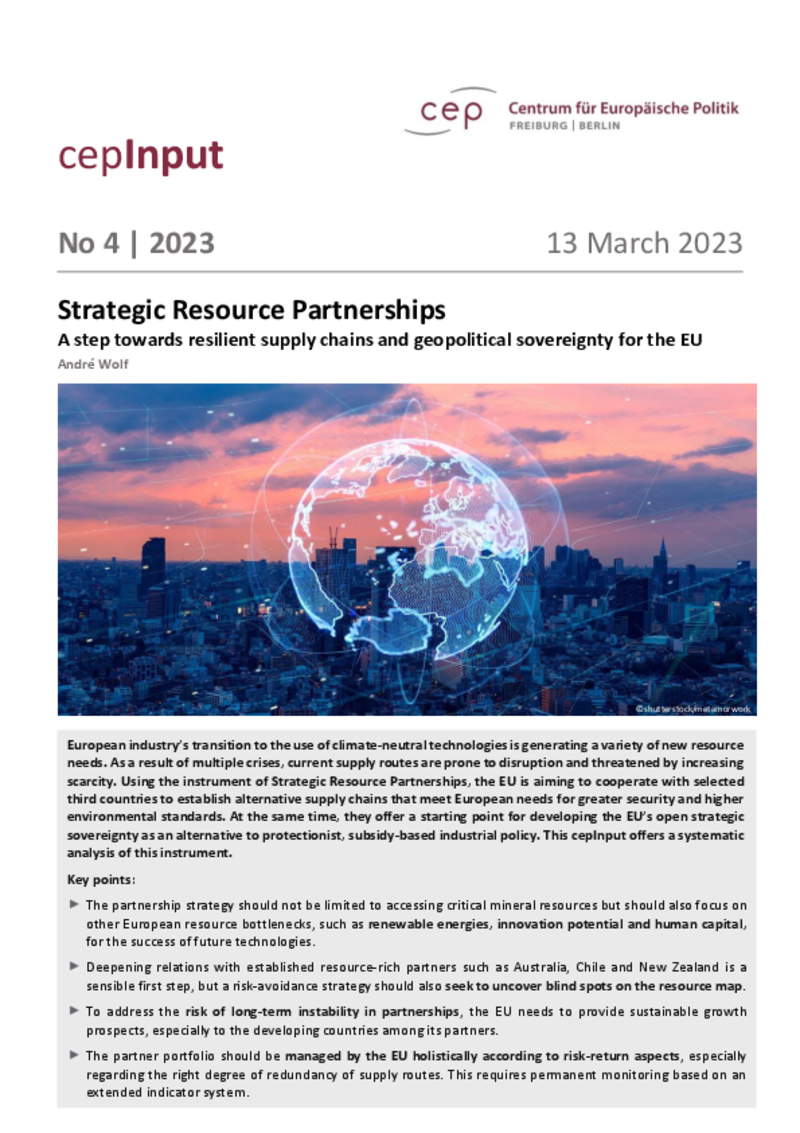
Economic & Fiscal Policy
Strategic Resource Partnerships (cepInput)
cepInput
"The crucial prerequisite for the long-term success of strategic partnerships is that Europe makes an attractive growth offer to future partners," says cep economist André Wolf, who conducted the first comprehensive analysis of partnership strategies. According to Wolf, Europe must give third countries the opportunity to expand their own contribution to value creation in the medium term - from raw materials to finished industrial products. In this way, the relationship with countries of the global south could also be recalibrated.
The cep expert calls on Brussels to broaden the definition of critical resources. For example, this would not only include mineral raw materials such as lithium or cobalt, but also human knowledge and innovation potential - important building blocks for Europe's future viability. Wolf believes that different partners are fitting in different areas, such as Chile, Australia, and South Africa in the case of mineral raw materials. In the field of knowledge, Wolf sees Japan, South Korea, and Singapore as potential attractive partners.
On March 14, the Commission plans to present a draft law on critical raw materials. It is expected to define concrete targets for the procurement of critical raw materials from domestic, European sources. Most recently, there had been reports of significant deposits of rare earths in Norway and Sweden.
Download PDF
| Strategic Resource Partnerships (cepInput) (publ. 03.13.2023) | 2 MB | Download | |
 | |||



